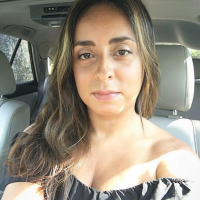
Working at Elephant Journal for the past eight years means I’ve spent much of that time online, interacting with readers and authors and keyboard warriors alike.
I’ve had many positive interactions (supportive readers, loyal authors) and even some profound interactions (having strangers from other corners of the world tell me how my words saved them, healed them).
And I’ve also had more negative interactions than I care to remember. Hateful, rude comments. Ignorance (so much ignorance). People complaining and raging and offering nothing of real benefit.
By the time I log off on any given day, I can find myself feeling equal parts emotionally inspired and mentally deflated.
The past few weeks since the Hamas-led terror attack in Israel and the ongoing Israeli occupation and genocide in Gaza have been no different.
Some days, I read comments and articles from readers and authors who are trying to educate themselves and others. Who are actively fighting for peace. Who want to find and create connection and benefit. Who want solutions and change and less violence and more understanding.
And the opposite is also true—some days I feel like I’m drowning in a sea of darkness and hate and eroding humanity from those who can’t see past their own ideologies and wounding. Who believe more violence against their perceived “enemy” will somehow keep them safe. Who love and care for and long to protect themselves and their families but can’t seem to extend that same love toward others.
Who rage at Elephant for not sharing enough or not sharing the “right” things or for claiming (erroneously) that we never cover the important issues. [*Just a reminder that we are reader-curated, meaning if there’s an article you want to read or a helpful perspective that you haven’t seen on Elephant, we encourage you to take action and write it!]
It can feel disheartening. And also infuriating.
And I’ve realized that’s often where my work—and all our work, really—begins. On the bridge between the words and ideas and actions that we deem unequivocally wrong or negative versus those we deem unequivocally right or positive. And even more importantly, how we choose to treat those who disagree with our view.
Because we can and should stand up for what we believe is just. But not if doing so ignores our humanity—or the humanity of others. Because one person’s fear or anger or grief shouldn’t mean another person’s harm or loss or death.
Because what we do to others, we ultimately do to ourselves.
This Pema Chödrön quote is one of the few things that has both comforted and empowered me recently. May it do the same for you:
“We are at a time when old systems and ideas are being questioned and falling apart, and there is a great opportunity for something fresh to emerge.
I have no idea what that will look like and no preconceptions about how things should turn out, but I do have a strong sense that the time we live in is a fertile ground for training in being open-minded and open-hearted. If we can learn to hold this falling apart–ness without polarizing and without becoming fundamentalist, then whatever we do today will have a positive effect on the future.
Working with polarization and dehumanization won’t put an immediate end to the ignorance, violence, and hatred that plague this world. But every time we catch ourselves polarizing with our thoughts, words, or actions, and every time we do something to close that gap, we’re injecting a little bodhichitta into our usual patterns. We’re deepening our appreciation for our interconnectedness with all others. We’re empowering healing, rather than standing in its way.
And because of this interconnectedness, when we change our own patterns, we help change the patterns of our culture as a whole.”
~ Pema Chödrön (from Welcoming the Unwelcome: Wholehearted Living in a Brokenhearted World)
~
AUTHOR: NICOLE CAMERON
IMAGE: MINIPERDE/PEXELS

This account does not have permission to comment on Elephant Journal.
Contact support with questions.